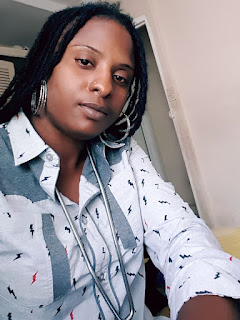Golding points to danger of low voter turnout
GOLDING... it compromises the legitimacy of political authority in the countryTHE steady decline in voter turnout is more than a small concern for Bruce Golding.“It is worrisome because it compromises the legitimacy of political authority in the country,” the former prime minister told journalists at last week’s Jamaica Observer Monday Exchange.
Golding, who served as head of the Government between 2007 and 2011, argued that with fewer Jamaicans participating in the electoral process, political authority is being based on the assent of slightly less than a majority of the island’s registered.
Golding made the comments after being asked to assess the low voter turnout in the February 25 General Election, which the Jamaica Labour Party won by one seat.
Voter turnout in parliamentary elections have continued to decline from a high of just under 87 per cent in 1980 to approximately 47.7 per cent this year.
Golding, though, believes the turnout in the February 25, 2016 election was actually a bit higher because the voters’ list, which amounts to 1,824,410, includes many names that are no longer eligible.
“We need to recognise that the voter turnout is based on an inflated voters’ list,” Golding pointed out. “It has not been reverified in the last 10 years, so that would include persons who were registered over that 10-year period who have died or who have migrated.”
He believes that estimates of up to 400,000 ineligible names on the list are too high.
“I would more conservatively put it at around 200,000/250,000 of the names on the list that ought properly to be removed, but they can’t be removed unless you have an islandwide verification,” Golding said.
“If you were to subtract those and run the same numbers again you come out with about a 55 per cent turnout, which is better than the 47 per cent. But it’s still something for us to be concerned about because we have been trending down over the last several elections and it is certainly nowhere near what obtains in other Caribbean countries,” Golding said.
He pointed out that in The Bahamas, Antigua, and Grenada, the turnout is approximately 90 per cent.
“In Barbados and Trinidad, which are at the lower end, they’re in the mid-60s, so that if we are even doing 55 per cent it is something for us to worry about,” the former prime minister said.
He agreed with a suggestion from the Observer that bogus voting in previous elections would have inflated the voter turnout. However, he argued that without empirical data it is difficult to make that calculation.
But even with that scenario, Golding lamented that there is still a large number of people who just don’t vote.
“A lot of persons in Jamaica who don’t vote are the persons who complain the most. They are the most vocal about what is going wrong and their way of dealing with it is to hiss their teeth and say, ‘Well, ah nah vote,’” he said.
“Part of the danger, if more and more people opt out of the system, is that you are playing right into the hands of the party bases, because it means that it is the energised, active party people [who] are now going to be determining who forms the Government,” Golding said.
“You get to a stage — and I imagine it happens on both sides — where a candidate and his team are going through a voters’ list, and they call out a name [and say], ‘Bwoy, him nuh vote ennuh, forget about him, just move on to the next one. So whatever that voter thinks or wants in his community, don’t pay any attention to that because he doesn’t vote.
“In the past that’s how they used to treat Jehovah’s Witnesses, but now it has moved much broader where it is a whole heap of people, and therefore the people who matter more are the people who wear the green and the orange shirts, which is something that I think is not good for the country.”





Comments
Post a Comment